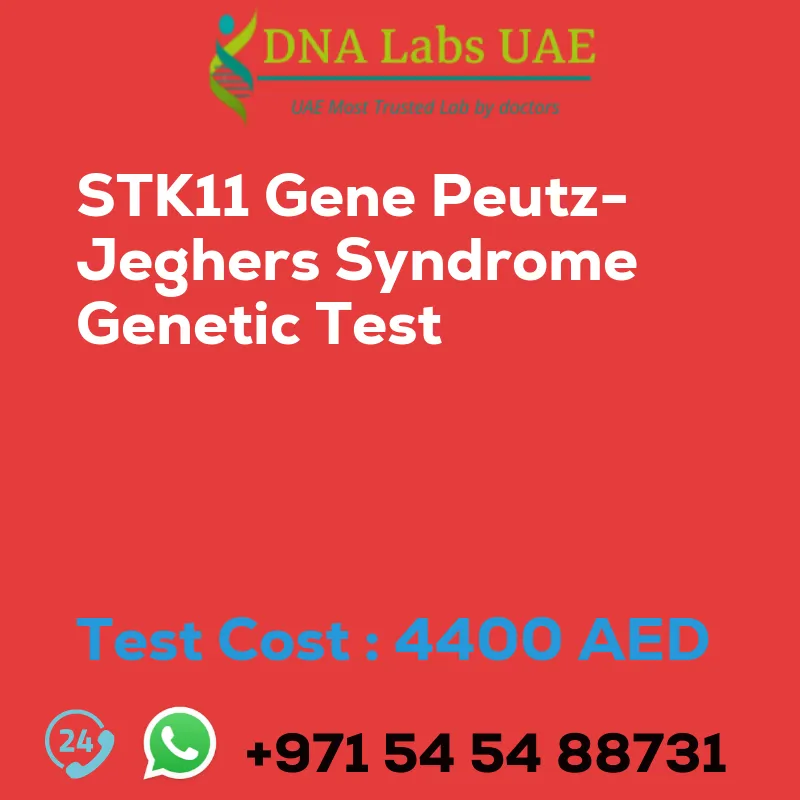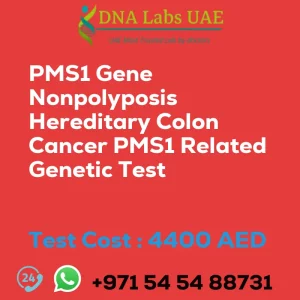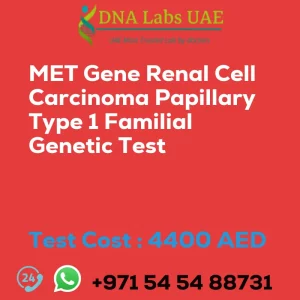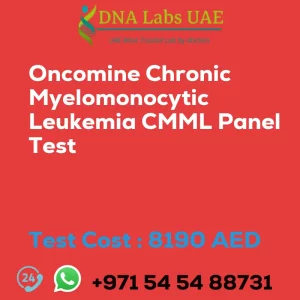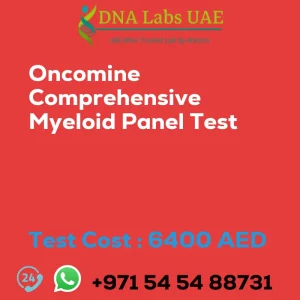STK11 Gene Peutz-Jeghers Syndrome Genetic Test
Components:
- Test Name: STK11 Gene Peutz-Jeghers syndrome Genetic Test
- Price: 4400.0 AED
- Sample Condition: Blood or Extracted DNA or One drop Blood on FTA Card
- Report Delivery: 3 to 4 Weeks
- Method: NGS Technology
- Test Type: Cancer
- Doctor: Oncologist
- Test Department: Genetics
Pre Test Information:
Clinical History of Patient who is going for STK11 Gene Peutz-Jeghers syndrome NGS Genetic DNA Test. A Genetic Counselling session to draw a pedigree chart of family members affected with STK11 Gene Peutz-Jeghers syndrome NGS Genetic DNA Test gene STK11.
Test Details:
The STK11 gene is associated with a condition called Peutz-Jeghers syndrome (PJS). PJS is a rare genetic disorder characterized by the development of polyps in the gastrointestinal tract, as well as pigmented spots on the lips, gums, and other mucous membranes. People with PJS have an increased risk of developing various types of cancer, including colorectal, pancreatic, stomach, and breast cancer.
NGS (Next-Generation Sequencing) genetic testing refers to a type of genetic testing that uses advanced sequencing technology to analyze multiple genes simultaneously. In the context of PJS, NGS genetic testing can be used to identify mutations or variations in the STK11 gene that may be responsible for the development of the condition.
NGS genetic testing for PJS typically involves obtaining a blood or saliva sample from the individual being tested. The DNA in the sample is then sequenced, and the data is analyzed to identify any mutations or variations in the STK11 gene. This information can help confirm a diagnosis of PJS and provide valuable information about the individual’s risk of developing associated cancers.
It is important to note that NGS genetic testing for PJS is typically performed in a specialized laboratory by trained professionals. The results of the test should be interpreted by a healthcare provider with expertise in genetics, who can provide appropriate counseling and guidance based on the individual’s specific situation.
| Test Name | STK11 Gene Peutz-Jeghers syndrome Genetic Test |
|---|---|
| Components | |
| Price | 4400.0 AED |
| Sample Condition | Blood or Extracted DNA or One drop Blood on FTA Card |
| Report Delivery | 3 to 4 Weeks |
| Method | NGS Technology |
| Test type | Cancer |
| Doctor | Oncologist |
| Test Department: | Genetics |
| Pre Test Information | Clinical History of Patient who is going for STK11 Gene Peutz-Jeghers syndrome NGS Genetic DNA Test. A Genetic Counselling session to draw a pedigree chart of family members affected with STK11 Gene Peutz-Jeghers syndrome NGS Genetic DNA Test gene STK11 |
| Test Details |
The STK11 gene is associated with a condition called Peutz-Jeghers syndrome (PJS). PJS is a rare genetic disorder characterized by the development of polyps in the gastrointestinal tract, as well as pigmented spots on the lips, gums, and other mucous membranes. People with PJS have an increased risk of developing various types of cancer, including colorectal, pancreatic, stomach, and breast cancer. NGS (Next-Generation Sequencing) genetic testing refers to a type of genetic testing that uses advanced sequencing technology to analyze multiple genes simultaneously. In the context of PJS, NGS genetic testing can be used to identify mutations or variations in the STK11 gene that may be responsible for the development of the condition. NGS genetic testing for PJS typically involves obtaining a blood or saliva sample from the individual being tested. The DNA in the sample is then sequenced, and the data is analyzed to identify any mutations or variations in the STK11 gene. This information can help confirm a diagnosis of PJS and provide valuable information about the individual’s risk of developing associated cancers. It is important to note that NGS genetic testing for PJS is typically performed in a specialized laboratory by trained professionals. The results of the test should be interpreted by a healthcare provider with expertise in genetics, who can provide appropriate counseling and guidance based on the individual’s specific situation. |

